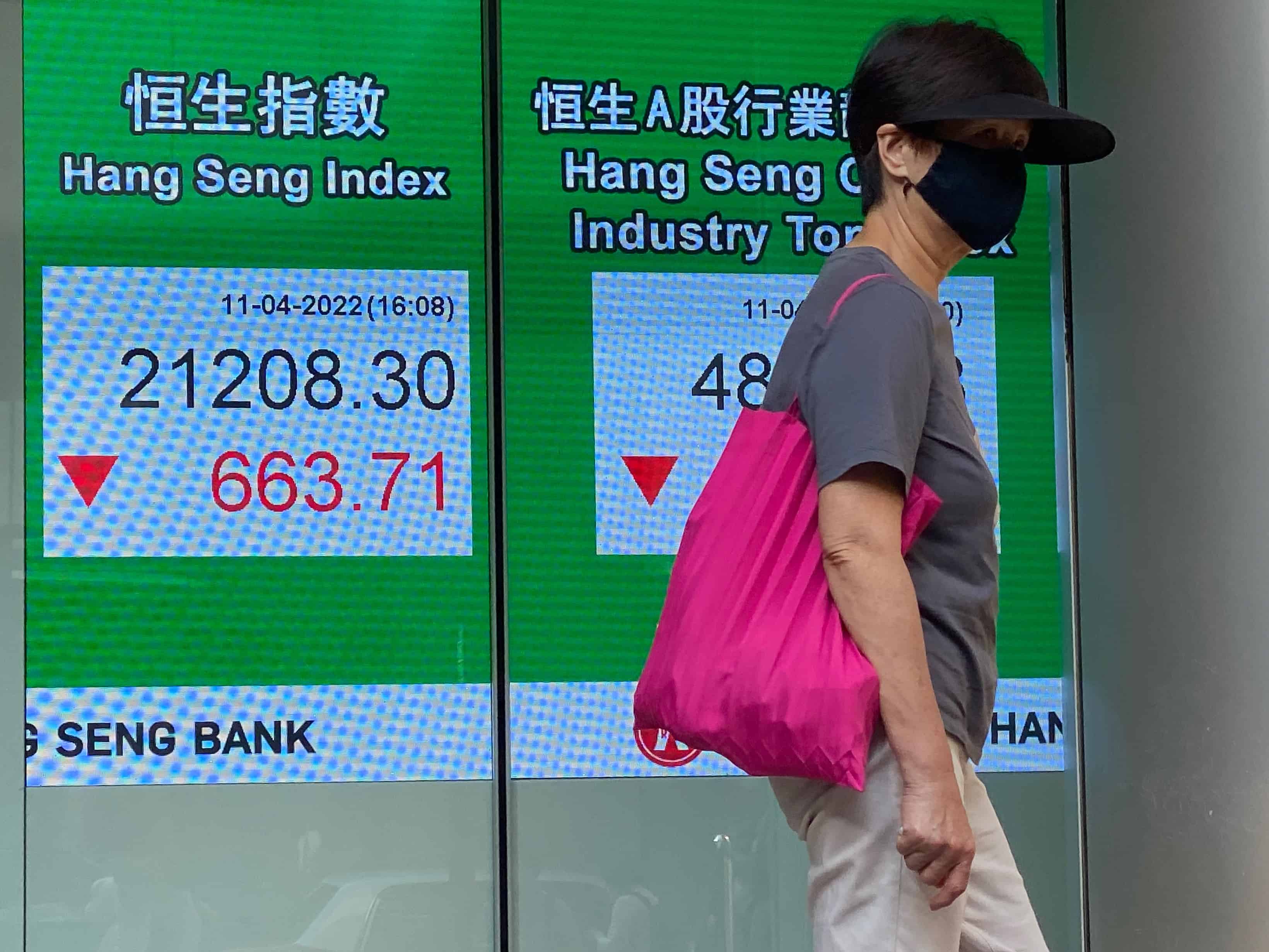The euro slumped to a near two-year low on Thursday after the European Central Bank remained vague about when it will raise interest rates in the face of soaring inflation.
The drop in the single currency helped boost European stocks, while Wall Street equities resumed a downward slide amid worries over tightening US monetary policy.
The ECB stood still in the face of record eurozone inflation, keeping its stimulus plans and rates unchanged, as the war in Ukraine cast a pall over the eurozone economy.
Meeting for the second time since the outbreak of the conflict, the bank’s 25-member governing council stuck to a plan that “should” see its bond-buying scheme come to an end in the third quarter.
An interest rate hike would follow “some time” after the stimulus program comes to an end, and any increases “will be gradual.”
The decision leaves the ECB further out of step with many of its peers. Central banks such as the Bank of England, US Federal Reserve and the Bank of Canada have already triggered their first interest rate rises in response to soaring inflation.
The euro took a knock after the ECB’s decision, slipping under $1.08 for the first time since May 2020, falling as low as $1.0758.
The ECB “continues to show little sign of looking to hike rates after leaving rates unchanged at their policy meeting today, while being even handed over the risks facing the eurozone economy,” said market analyst Michael Hewson at CMC Markets UK.
The ECB announcement provided a boost for eurozone stocks, however, which moved into positive territory and ended the day higher.
– Musk Twitter bid –
Wall Street meanwhile retreated, concluding a holiday-shortened week on a weak note, as the yield on the 10-year US Treasury note surged above 2.8 percent. Treasury yields are seen as a proxy for interest rates.
“Right now, we’re tied to this correlation between rising yields and falling tech shares,” said Art Hogan, strategist at National Securities.
All three major indices fell, with the Nasdaq leading the group by falling 2.1 percent.
Large banks were mixed following a deluge of earnings, with executives describing the US economy as in solid condition, but warning of uncertainty over the Ukraine invasion, inflation and shifting monetary policy.
Citigroup gained 1.6 percent, while Goldman Sachs dipped 0.1 percent and Wells Fargo tumbled 4.5 percent.
Elsewhere on the corporate front, Tesla chief Elon Musk launched a hostile takeover bid for Twitter, offering to buy 100 percent of its stock and take it private, according to a stock exchange filing.
The move follows Musk’s criticism of the platform. Some analysts expressed skepticism about the bid, noting Musk’s history of outrageous and unpredictable conduct
Oil prices, meanwhile, pushed higher following a New York Times report that European officials were drafting a plan for an embargo on Russian crude products.
– Key figures around 2100 GMT –
New York – Dow: DOWN 0.3 percent at 34,451.23 (close)
New York – S&P 500: DOWN 1.2 percent at 4,392.59 (close)
New York – Nasdaq: DOWN 2.1 percent at 13,351.08 (close)
Frankfurt – DAX: UP 0.6 percent at 14,163.85 (close)
Paris – CAC 40: UP 0.7 percent at 6,589.35 (close)
London – FTSE 100: UP 0.5 percent at 7,616.38 (close)
EURO STOXX 50: UP 0.5 percent at 3,848.68 (close)
Tokyo – Nikkei 225: UP 1.2 percent at 27,172.00 (close)
Hong Kong – Hang Seng: UP 0.7 percent at 21,518.08 (close)
Shanghai – Composite: UP 1.2 percent at 3,225.64 (close)
Brent North Sea crude: UP 2.7 percent at $111.70 per barrel
West Texas Intermediate: UP 2.6 percent at $106.95 per barrel
Euro/dollar – DOWN at $1.0832 from $1.0888 at 2100 GMT
Pound/dollar – DOWN at $1.3076 from $1.3117
Euro/pound – DOWN at 82.77 pence from 83.01 pence
Dollar/yen – UP at 125.87 from 125.62








